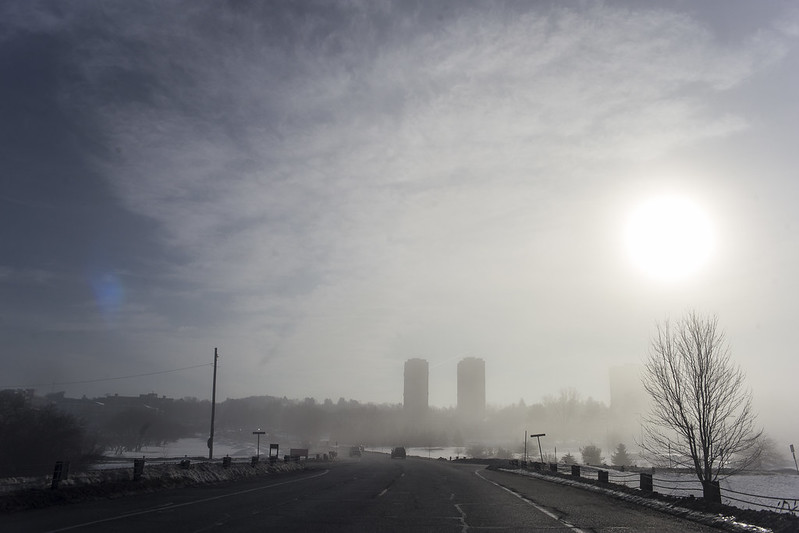As the academic year moves further into the winter, the sun sets earlier, the weather gets colder and University of Massachusetts students are feeling the adverse effects of daylight savings time.
Over the past few years, legislation to maintain standard time year round has been introduced frequently, recently in the form of Sen. Marco Rubio’s Sunshine Protection Act. The act, which aims to eliminate the “fall back” of clocks, gained support in 2022, but action has quickly fallen off since then. Although states are considering proposals to adopt one permanent time zone, none have adopted a legislative change in recent years.
These time shifts began in 1966, initially implemented for transportation and commercial activities and regulated by the Department of Transportation. On a global scale, daylight savings time is only currently observed in one third of countries. The only two U.S. states that do not change their clocks are Arizona and Hawaii.
19 U.S. states are considering making the switch away from time changes, including Massachusetts. There are currently three bills pending in support of permanently switching the Commonwealth to standard daylight hours.
Donald Snyder, a political science graduate student with a focus on political psychology and polarization, commented on the recent legislation proposed. Snyder is originally from New York, but received his undergraduate degree from Purdue University in Illinois, which is closer to the equator, so the days are not as short in the wintertime. “Coming to UMass, I didn’t realize that something like a 4:30 p.m. nighttime was possible, so I guess I’ve kind of been spoiled in that way where it’s like … ‘wow, why?’” Snyder said.
The question of “why?” has been raised by many people across the country, not just UMass students. Snyder believes that legislation has not been passed due to a lack of awareness in Congress and that the whole country is not involved in supporting the implementation of standard time. “The process probably takes a lot more time than doing it at the local or the state level,” he explained.
The hours of darkness replacing hours once filled with light can have severe effects on one’s mental, physical and emotional wellbeing, especially for already busy and stressed college students, studies have shown.
The change in schedule impacts UMass’ large international student population, as they adjust not only to a new school and country, but to a shift in daylight and time as well.
Aditya Reddy, an economics major and international student from India, said his parents briefly taught him about daylight savings time, but his friends had to show him what it was when the time came. Reddy shared that the 4 p.m. sunset came as a shock and the darkness limits the time he has to play sports in the evening.
“I play a lot of sports and I can’t go out to play late anymore since it gets dark too early,” Reddy said. “You can’t see the ball when you’re playing.”
Reddy added that daylight savings time doesn’t make sense to him and called the way time was before the change “perfect.”
Research done in 2017, according to Snyder, shows a link between “depression, circadian rhythm changes and seasonal affective disorder, which is a disorder that basically is thought to result from a lack of sunlight.” He explained that as UMass has such few daylight hours, it could be the root of the strong feelings around daylight savings.
Snyder also referenced a recent study published in 2022 which focuses on the neuroscience of daylight savings. He said that it “may create sleep disturbances [for] people who have earlier start times in the morning, which could disproportionately impact poor and minority communities”.
As students become more aware of the impacts of daylight savings and the negative feelings it brings, there is also a growing nation-wide conversation of whether the concept is relevant and helpful in the present day.
Sasha Selick, a psychology major on the pre-medical track, described being in school during daylight savings time as a “perpetual state of darkness.”
With the onset of the time change, Selick has to wake up early for class before the sun rises and finishes at around 4 p.m, right when it starts to get dark. Having no sunlight during the school year can get tough, especially for busy pre-medical students like Selick.
They noted that sunlight exposure has a big impact on people’s mental health. “Without a proper or sufficient amount of vitamin D exposure…chemically, you’re not going to have as high of a mood as you do when there’s no daylight savings [time] and you have ‘normal day cycles,’” they said.
As winter unfolds, the impact of daylight savings time on UMass students becomes increasingly apparent. The clock is set to change back on March 10.
Daniella Pikman can be reached at [email protected]. Kate Killam can be reached at [email protected].



















